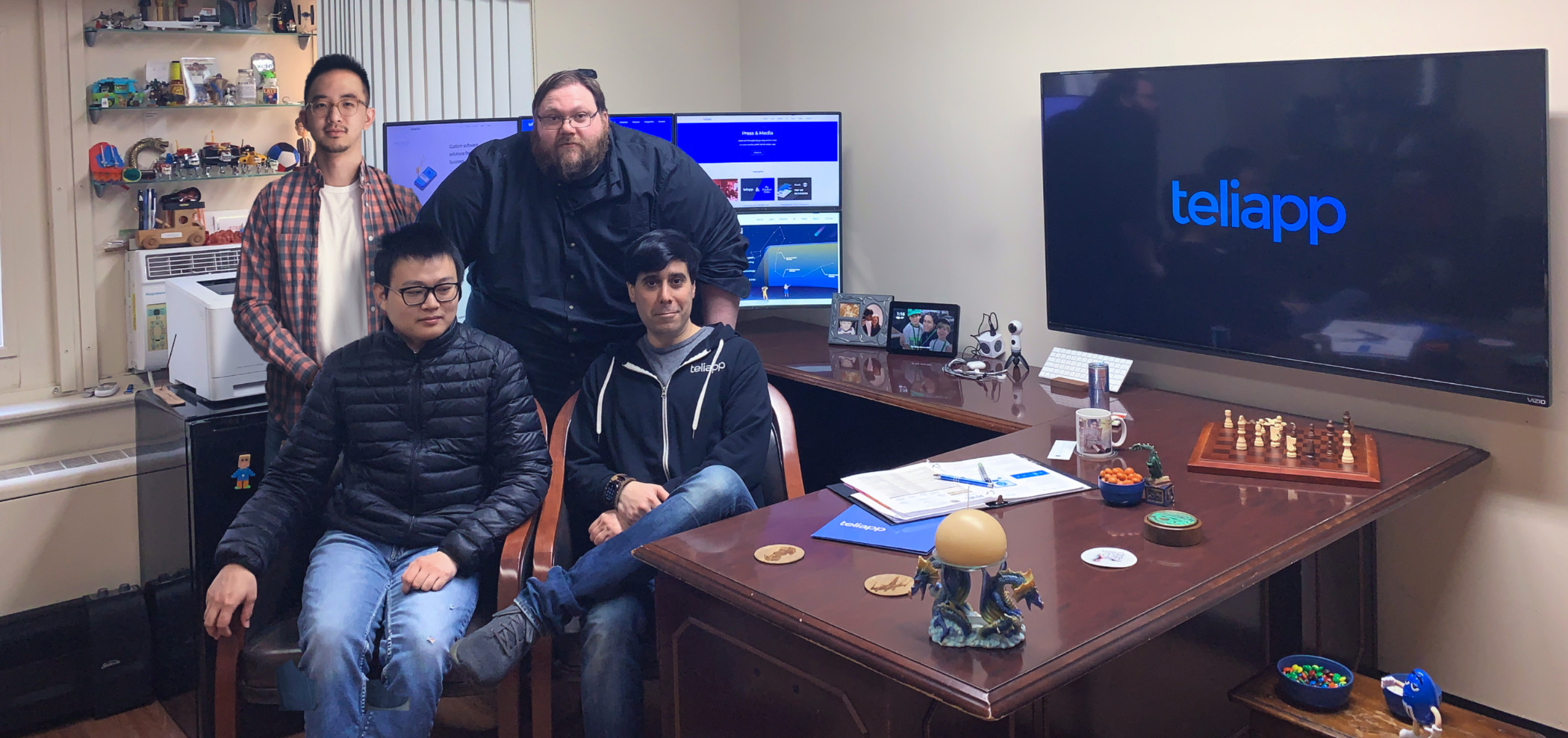TeliApp’s Fetch Internet app featured in NJ Tech Weekly – Fetch is faster, safer and better than public and non-secure WiFi, Teliapp’s Joshua Weiss Says
Esther Surden, a journalist at NJ Tech Weekly, quotes our CEO Joshua Weiss in an article featuring Fetch Internet.
TeliApp’s Fetch Internet is a Secure Alternative to Public WiFi
The TeliApp (Linden) team recently announced the launch of their Fetch Internet app, which enables people to provide internet access from their iPhone and Android smartphones to their Mac and Windows computers.
“Fetch Internet is a safe internet-usage alternative to hotspots and public WiFi for professionals and consumers alike,” said Joshua Weiss, TeliApp’s founder and CEO. Fetch has recently been featured on NBC, CBS and FOX News, he noted.
Weiss said that the idea for Fetch came to him when he was trying to work on federal contract proposals while on the road. He realized that, as a federal contractor, TeliApp was required to adhere to strict regulations regarding the protection of Controlled Unclassified Information. Public networks and hotspots aren’t secure enough for government contractors to use for work, he said.

Fetch is much more secure than public networks in hotels, airports or coffee shops, Weiss noted, so it will allow those who work on sensitive, privacy-protected documents to do so safely in public locations. He added that one of the easiest scams is one in which a hacker sets up a Wi-Fi network in a public space, such as a Whole Foods or Starbucks. The hacker gives the alternate Wi-Fi network the same name as that of the actual public Wi-Fi network, making it virtually impossible to distinguish between them. And when you connect to the wrong one, you expose your computer’s data to hacker exploitation.
“In fact, many people set their computers and their smartphones to automatically connect to familiar networks, such as those provided by their ISP (internet service provider). So, a computer may automatically connect to [the hacker’s network] without the user realizing it. This is incredibly dangerous,” said Weiss.
TeliApp is also promoting this product as an alternative to conventional ISPs for students. Cutting the cord from legacy ISPs can save consumers over $1,000 per year, Weiss said. Fetch costs only a few dollars to download, with no additional fees.
Later this year, TeliApp plans to introduce a pro plan that will add additional security features. “We believe that even people who don’t need the pro plan will still opt in, and it will be priced at only $1 per month,” said Weiss.
TeliApp is currently distributing Fetch through local New Jersey hotels, enabling them to stabilize the cost of providing high-speed internet service to their customers. According to Weiss, Fetch Internet is a win-win for the travel and hospitality industries, so the company is actively pursuing distribution opportunities with large hotel chains and airports. He hopes that Fetch will eventually be included as an option in travel and hotel reward programs.
TeliApp is also piloting distribution with local fast-casual restaurants, such as Melao Cafe & Creamery, in Rahway. Weiss fondly recalled the days when his team worked out of a Panera Bread restaurant in Edison, but he wasn’t so fond of the frequent mid-afternoon internet blackouts there. Like many large fast-casual chains, Panera Bread only allowed short or “painfully slow” internet connections during their busy periods.
“Large fast-casual chains are already sensitive to the significant cost of providing high-speed internet to their customers,” he said. “Fetch is an inexpensive alternative to their public Wi-Fi that will give them a way to serve customers while lowering costs.
Weiss said that simple table-tents have proven to be an effective educational tool in both fast-casual and hotel settings. “Fetch scales effortlessly, so we’re excited that there are many use cases for the technology, and we’re looking forward to large-scale roll-outs.”
Joshua Weiss of TeliApp
